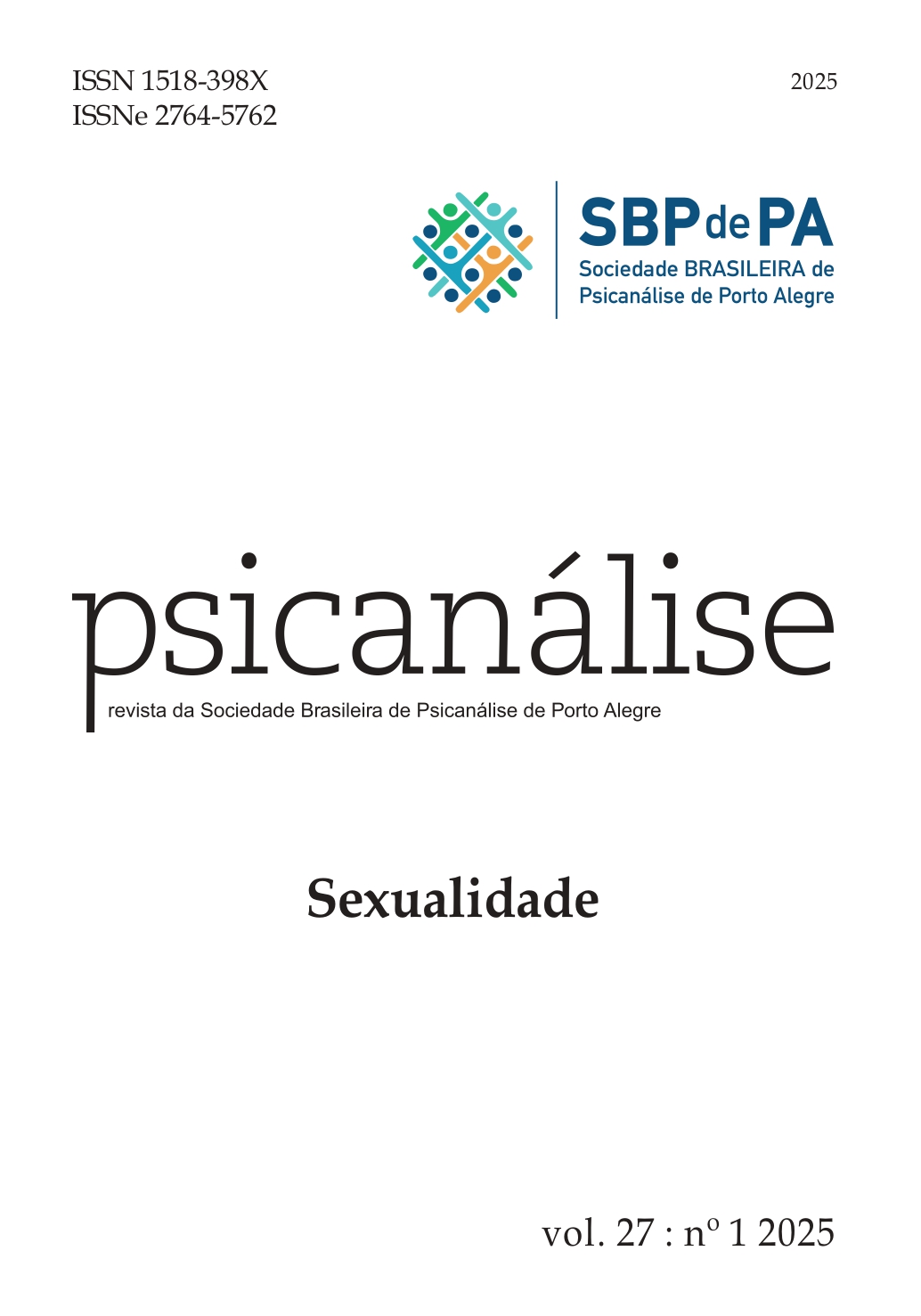Review of the book A psicanálise e a crítica filosófica: Deleuze e os devires da psicanálise, by Roberto Barberena Graña
DOI:
https://doi.org/10.60106/rsbppa.v27i1.925Keywords:
Book review, PsychoanalysisAbstract
Gilles Deleuze says, at the beginning of his book on Michel Foucault, that "a new archivist is in town, but has he been appointed, or will he act on his own?", in a paraphrase of Franz Kafka's harrowing and inconclusive The Castle (2008), in which the new surveyor K. arrives in a village and is not recognized as such. In trying to do so, he finds himself lost in a labyrinth of power and knowledge relations, with characters whose focus, size, and dimensions fluctuate. In his futile search for the duke, the surveyor fails to even get close to the lowest-ranking official in the castle for almost 400 pages and begins to question his own identity as a surveyor, and this identity becomes faciality, a composition of lines of force. This is the book "Deleuze ou os devires da psicanálise", which deals with the philosopher of becomings, whom some mistakenly consider a historian of philosophy for having produced works that escaped the hegemony of Friedrich Hegel and Plato and delved into Friedrich Nietzsche, Henri Bergson, Baruch de Spinoza, David Hume, and Francis Bacon, always in an absolutely intrusive manner, "making children behind" and "becoming" them in the formation of a philosophy of lines of flight, "a body without organs stitched together by painful waves." One of the waves stitched together by Deleuze and his double, Guattari, is psychoanalysis. In his book, Roberto Graña navigates Deleuzian power and produces his own monstrous child, fathered by Jean Paul Sartre, Martin Heidegger, Donald Winnicott, Jacques Derrida, Jacques Lacan, and Elizabeth Roudinesco. [...]
Downloads
References
Bachelard, G. (2007). A formação do espírito científico. Editora Contraponto.
Deleuze, G. (1988). Foucault. Braziliense.
Deleuze, G.; & Guattari, F. (1992). O que é a filosofia? Editora 34.
Kafka, F. (2008). O castelo. Editora Cia das Letras.
Preciado, P. (2020). Eu sou o monstro que vos fala. Editora Zahar.
Wiener, N. (1950). Cibernética e sociedade: O uso humano de seres humanos. Editora Cultrix.
Zizek, S. (2008). O sublime objeto da ideologia. Editora Civilização Brasileira.
Downloads
Published
How to Cite
Issue
Section
License
Copyright (c) 2025 Sociedade Brasileira de Psicanálise de Porto Alegre

This work is licensed under a Creative Commons Attribution-NonCommercial-NoDerivatives 4.0 International License.
I attribute the copyrights that belong to me, on this work, to SBPdePA, which may use and publish it by the means it deems appropriate, including on the Internet or in any other computer processing.
















